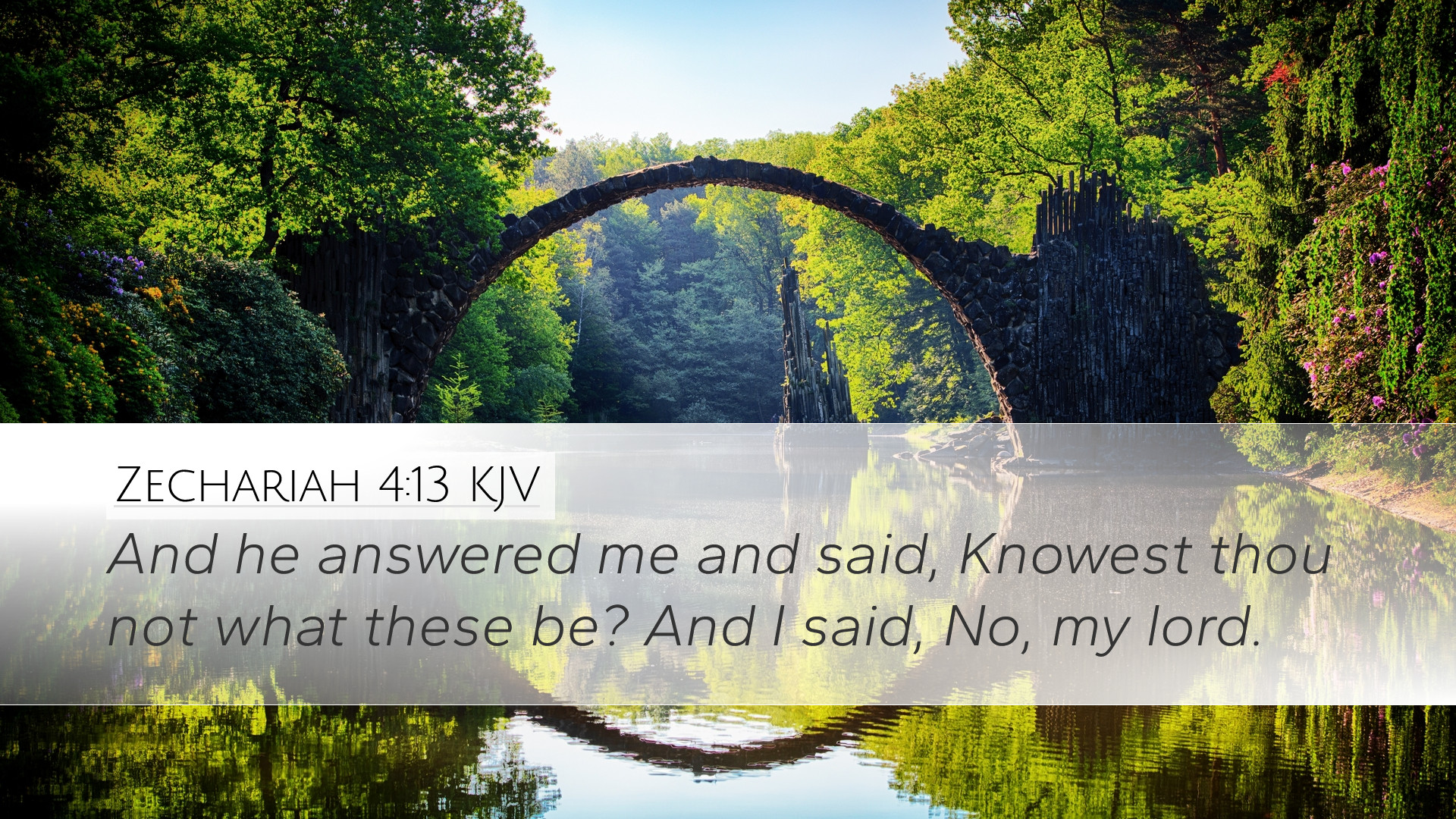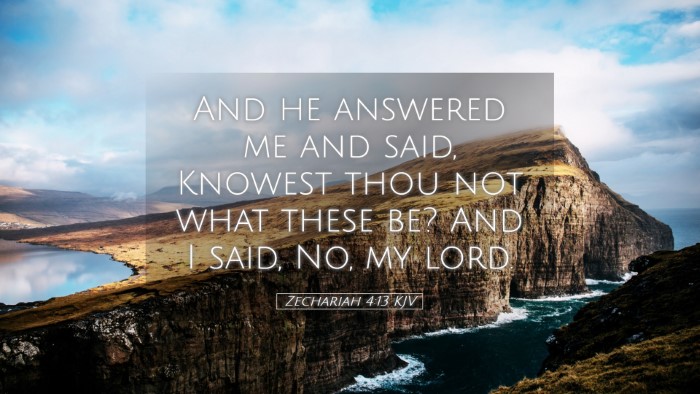Old Testament
Genesis Exodus Leviticus Numbers Deuteronomy Joshua Judges Ruth 1 Samuel 2 Samuel 1 Kings 2 Kings 1 Chronicles 2 Chronicles Ezra Nehemiah Esther Job Psalms Proverbs Ecclesiastes Song of Solomon Isaiah Jeremiah Lamentations Ezekiel Daniel Hosea Joel Amos Obadiah Jonah Micah Nahum Habakkuk Zephaniah Haggai Zechariah MalachiZechariah 4:13
Zechariah 4:13 KJV
And he answered me and said, Knowest thou not what these be? And I said, No, my lord.
Zechariah 4:13 Bible Commentary
Commentary on Zechariah 4:13
Bible Verse: "And he answered me and said, These are the two anointed ones, that stand by the Lord of the whole earth." (Zechariah 4:13, KJV)
Contextual Background
The book of Zechariah, one of the twelve minor prophets, was written during a time of great transition for the Israelites. They had returned from Babylonian exile and were tasked with rebuilding the temple. Zechariah's prophecy emphasizes God's sovereignty, the significance of the temple, and the coming of the Messiah. This verse forms a critical part of a vision that highlights God's empowerment for His chosen leaders.
Verse Analysis
1. The Two Anointed Ones
In this verse, the reference to “two anointed ones” signifies those appointed by God to lead His people. Matthew Henry notes that these individuals symbolize not just political leaders, but also spiritual leadership essential for the renewal of Israel. They are seen as the representatives of God’s will for His people, embodying divine authority.
2. Standing by the Lord
The phrase "stand by the Lord" depicts a place of honor and favor. The anointed ones—often identified as Zerubbabel and Joshua—symbolize those who are empowered by God to accomplish His plans. Albert Barnes elaborates that their position suggests an active role in intercession and service, which is crucial in fulfilling God’s promises to His people.
Theological Insights
- Divine Empowerment: Adam Clarke emphasizes that the power to achieve God's purposes is granted by Him. The act of being anointed signifies not merely a title but an enablement for one to fulfill God’s mission. This highlights the necessity of reliance on divine strength rather than mere human ability.
- Symbolism of Leadership: The two figures represent dual forms of leadership—priestly and royal. Their anointing indicates the blending of kingly and priestly roles in serving God’s people, setting a precedent for Christ’s ultimate fulfillment of these positions.
- The Role of the Church: The commentary reflects on the nature of spiritual leadership within the church today. Each believer is called to be an anointed one, empowered to fulfill their God-given duties, paralleling the roles described in Zechariah’s vision.
Reflections for Application
- Understanding Leadership: For pastors and church leaders, this passage serves as a reminder of the divine calling and empowerment that accompanies the role of leadership. It is essential to recognize that true authority comes from God and that the leader’s first responsibility is to stand in His presence to receive wisdom and strength.
- Collective Responsibility: The community of believers is encouraged to acknowledge their collective anointing. Each member plays a role in reflecting God’s Kingdom through service and worship.
- Reliance on God: The assurance that God’s Spirit is the ultimate source of strength and guidance underscores the importance of prayer and dependence on God for any endeavor undertaken in His name.
Conclusion
In Zechariah 4:13, we find profound insight into divine leadership and empowerment. The representation of the "two anointed ones" encapsulates a message of hope and encouragement for God's people. Whether for individual believers or collective church bodies, the assurance of God's presence and the empowering Spirit remains a vital source of strength in all ministry endeavors.


